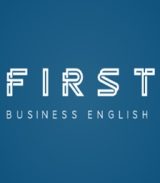
Future Tenses In A Business Context
- Posted by Ryan Anthony
- Categories A2-B1 Lesson Blog, Blog
- Date March 26, 2025
In business, discussing future plans, predictions, and schedules is very common. Understanding how to use different future tenses correctly will help you communicate clearly and professionally. In this First Business English article we introduce key vocabulary, useful phrases, and an example paragraph to help you use future tenses in a business context effectively.
1. Key Future Tenses and Their Uses in Business
Future Simple (will + verb)
Used for predictions, promises, or spontaneous decisions.
“I think sales will increase next quarter.”
“I will send the report by the end of the day.”
“Don’t worry, I will call the client now.”
Be Going To + Verb
Used for planned actions and strong predictions based on evidence.
“We are going to launch a new product next month.”
“It looks like the company is going to expand soon.”
“I am going to meet the supplier tomorrow.”
Present Continuous (for fixed future arrangements)
Used for scheduled meetings and appointments.
“We are meeting the investors on Friday.”
“I am flying to New York for a conference next week.”
“She is presenting the project tomorrow.”
Future Perfect (will have + past participle)
Used to show an action that will be completed by a certain time.
“By next month, we will have finished the project.”
“The report will have been sent before the meeting.”
“By the end of the year, we will have reached our sales target.”
2. Common Business Phrases Using Future Tenses
“We will discuss the budget in the next meeting.”
“I am going to attend a training session next week.”
“The CEO is meeting the board of directors tomorrow.”
“By next Friday, the company will have finalized the contract.”
“I will call you as soon as I have an update.”
3. Example Paragraph Using Future Tenses in a Business Context
Next month, our company is going to launch a new marketing campaign. The marketing team is meeting with the designers on Monday to finalize the visuals. Our CEO will attend the launch event to give a speech. By the end of the quarter, we will have reached our target audience and increased brand awareness. I am going to manage the project and ensure that everything runs smoothly. We hope that this campaign will attract more customers and boost sales.
4. Final Thoughts
Using future tenses correctly is important for discussing business plans, making predictions, and organizing meetings. By practicing these tenses and phrases, you can communicate more effectively in professional settings. Whether planning a project, scheduling a meeting, or predicting future trends, mastering future tenses will help you express yourself clearly in business English. To learn more simply book a lesson with us at First Business English.
Good Luck. Keep learning with First Business English. Best Business English Online.
About First Business English
First Business English is a premium business English language online education center that provides individuals and groups the opportunity to learn Business English that enhances their careers and lives through a structured Business English curriculum. Contact Us
Ryan Anthony is an enthusiastic, self-motivated, reliable Online Business English language tutor who is learner focused and highly adaptable. Bachelor of Business Studies Degree educated with extensive IT Support, Call Centre Management, Retail Management and English Language Teaching experience.
You may also like

The Pros And Cons Of Freelancing As A Career

The Effect Of Prices And The Cost Of Living




